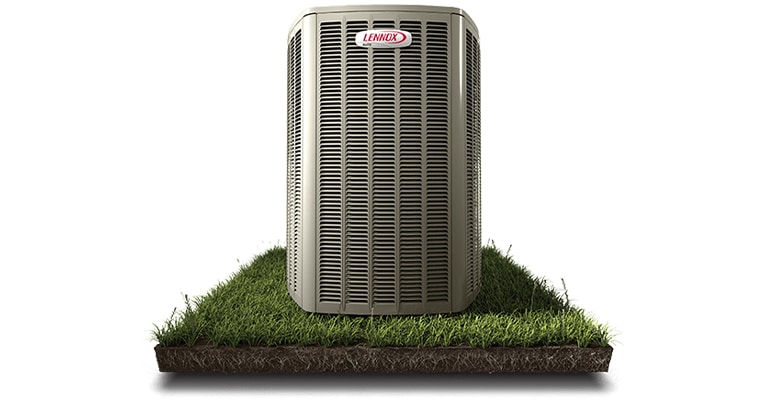Understanding the Difference Between a Heat Pump and a Furnace

As the temperatures drop and winter approaches, an efficient and reliable heating system is important for every homeowner. There are two primary heating systems used in residential settings- the heat pump and the furnace. Understanding the key differences between these systems allows you to make an informed decision that best suits your needs.
How Heat Pumps Work
Heat pumps use a heat transfer process to provide both heating and cooling to your home. During the winter, a heat pump absorbs heat from the outdoor air and moves it indoors. In the summer, it reverses this process to expel heat from your home, providing cooling.
To achieve this, heat pumps use a refrigerant that circulates between the indoor and outdoor units. The refrigerant absorbs heat from the outdoor air, and through compression, it increases the temperature of the refrigerant. This heated refrigerant then releases the heat indoors through the indoor unit’s coil while it expands.
How Furnaces Work
A furnace is a traditional heating system that generates warmth by burning fuel, like natural gas or oil, or creating heat through resistance using electricity. This process occurs in a heat exchanger, where the generated heat transfers to the air passing over it. The heated air is then distributed throughout the house via ducts and vents.
The type of furnace you have depends on the fuel source. Gas furnaces are common in many homes. They may burn natural gas or propane. Oil furnaces are less common but still found in some regions. Though less efficient, electric furnaces are an option for homes without access to gas or oil.
Heating Efficiency Comparison
One crucial aspect to consider when choosing between a heat pump and a furnace is their heating efficiency. Heat pumps are renowned for their high energy efficiency and are often rated using the Coefficient of Performance (COP). The COP represents the ratio of heat output to electricity input. Generally, a COP of 3 or higher means the heat pump produces three times more heat than the energy it consumes.
Fuel-burning furnaces are rated using the Annual Fuel Utilization Efficiency (AFUE) rating. AFUE measures the percentage of fuel the furnace converts into usable heat. The higher the AFUE rating, the more efficient the furnace. Modern high-efficiency gas furnaces typically have AFUE ratings of 90% or above, while older models may have ratings around 70%. Keep in mind that electric furnaces cannot use this metric.
Performance in Different Climates
The performance of heat pumps and furnaces varies based on the climate in which they operate. Heat pumps excel in moderate climates where winters are milder. They can efficiently extract heat from the outdoor air and warm your home comfortably down to a range between 25 and 40 degrees fahrenheit. At this point, they become less efficient.
In colder climates, heat pumps might incorporate supplemental heating systems or activate defrost cycles to ensure efficient operation. This often involves using electric resistance heating, which can be less energy-efficient than the heat pump itself. Geothermal heat pumps are another alternative for regions with more extreme weather spectrums. They allow for heat transfer to take place underground, where temperatures are less extreme.
Furnaces perform reliabluy well in colder climates. They provide consistent heating, even during the coldest winter days and their efficiency is not affected by the outdoor temperatures. The combustion process allows them to generate ample heat to keep your home warm and comfortable.
Installation and Maintenance
The installation and maintenance requirements differ between heat pumps and furnaces. Heat pumps require proper sizing and installation to ensure optimal performance. They work best when the outdoor unit has adequate space and is unobstructed to allow free airflow. Properly installed heat pumps can operate efficiently for many years.
Both heat pumps and furnaces rely on a network of ductwork to distribute heated air throughout the house. Proper unit size, duct sizing and insulation are crucial for efficient operation. Regular maintenance, such as filter changes and annual inspections, is essential to keep both heat pumps and furnaces running smoothly and prolong their lifespan.
Environmental Impact and Sustainability
Regarding environmental impact, heat pumps tend to be more environmentally friendly than furnaces that rely on burning fossil fuels. Heat pumps do not produce direct emissions on-site; they move heat instead of generating it through combustion. However, it’s important to consider that most heat pumps use refrigerants, which can have varying environmental impacts based on their type. Eco-friendly refrigerants, such as R-410A, are now required in modern heat pump systems to reduce greenhouse gas emissions.
Furnaces emit greenhouse gases during combustion, especially those using natural gas and oil. This makes them less environmentally friendly than heat pumps. However, advancements in furnace technology have led to increased efficiency and reduced emissions compared to older models.
Call the Professionals Today!
Are you in need of reliable cooling, heating, or heat pump services in Windsor and surrounding areas? Our experienced professionals are dedicated to providing exceptional solutions for all your HVAC needs. In addition to heating and cooling installation, maintenance and repair, we can provide boiler, air purification, heat recovery ventilation, ductless split and water heater services. Call Guaranteed Comfort Heating & Cooling today and experience the ultimate in HVAC services.
